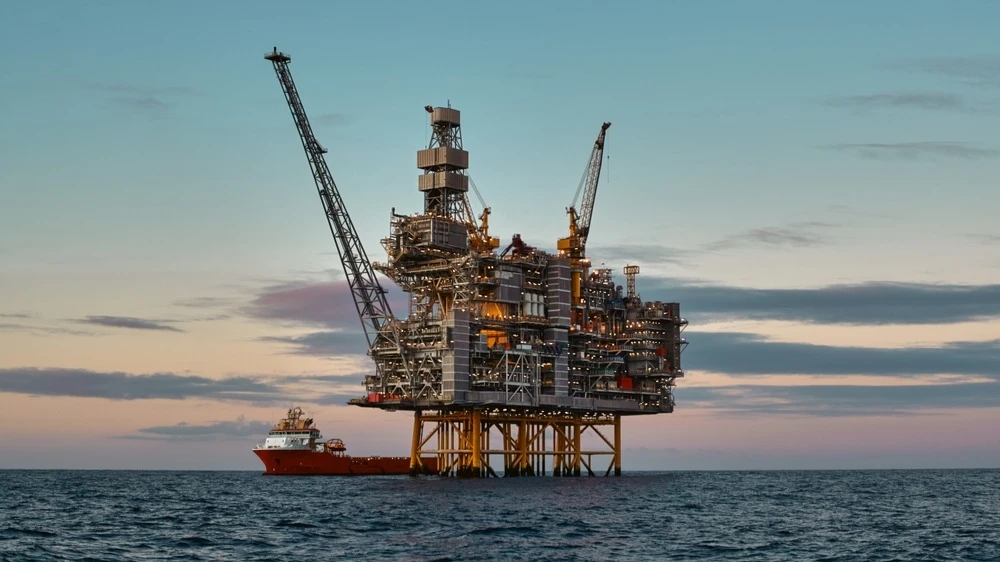Morgan Stanley raised targets on oil company shares amid rising oil prices
The Bank notes growing investor interest in non-Middle Eastern companies in the oil and gas extraction sector

Morgan Stanley on June 17 raised the target prices of shares of several oil and gas companies from Europe amid a sharp rise in oil prices. One of the largest Wall Street banks noted the increasing interest of investors in companies not related to the Middle East.
Details
A sharp rise in Brent oil prices in recent days has caused a 7-11% rise in share prices of individual oil and gas exploration and production (E&P) companies, reports Investing.com citing a Morgan Stanley report. The investment bank noted the potential for further growth of quotations of Norwegian Var Energi and British Harbour Energy. In addition to oil prices, their shares are supported by high level of free cash flow and clear profit distribution policy.
- Morgan Stanley raised its target price for Var Energi from NOK 35.3 to NOK 38.2. The investment bank expects the company to generate a free cash flow yield (FCFY) of around 19% per annum in 2025-2026, with a sustainable dividend yield of 14%, thanks to the launch of Balder X, a major oil and gas project on the Norwegian continental shelf. At current Brent prices, FCFY could rise to 25% in 2025, the bank forecasts.
- For Harbour Energy, the target price has been raised to £2.76 per share from £2.5. The company is estimated by Morgan Stanley to deliver FCFY of around 17% in 2025-2026 and a dividend yield of around 9%. At current oil prices, Harbour Energy's FCFY could reach 20% in 2025.
- The target price of another British oil and gas company Ithaca Energy is increased from £1.41 to £1.57 per share. Expected FCFY of 24% in 2025 and 17% in 2026, with a dividend yield of 14%. Ithaca Energy operates primarily offshore North Sea in the UK sector.
- With regard to the Norwegian Aker BP analysts Morgan Stanley kept the rating at the level of "below market". Shares of the company recently rose by 11%, and the bank believes that the growth potential is exhausted: quotes reflect the price of oil at $75 per barrel. The forecast for FCFY is about 2% in 2025-2026, with a maximum of 5% at current prices. However, the target price has been raised from 200 to 232 crores, but still implies a decline from current levels of about 15%.
- The target on shares of Energean, whose securities are traded on the London and Tel Aviv exchanges, has been revised downwards from £10.8 to £9.3. The reason is the shutdown of production at the Karish field in Israel and rising geopolitical risks.
Morgan Stanley still is still choosing a base case scenario with oil prices at $60 a barrel - despite supply uncertainty and geopolitics that allow for more expensive oil, up to $120 a barrel. That said, the bank's analysts say current high prices justifiably lead to widening risk premiums.
Context
Oil prices are rising for the second day in a row: in the morning of June 18 at trading in Asia, Brent added 0.3% to $76.7 per barrel, WTI - 0.5% to $75.2, continuing the growth of 4% over the previous session. The reason was new concerns that the escalation of the conflict between Iran and Israel could disrupt oil supplies from the Middle East.
On June 17, US President Donald Trump demanded Iran's "unconditional surrender" in the war with Israel. The open armed confrontation between the two countries has been going on for nearly a week. The Pentagon is moving additional fighter jets to the region, reported Reuters, citing sources in Washington.
Over the past two weeks, Brent has risen by $10 per barrel. Fitch analysts believe that the geopolitical premium to oil prices is still within the range of $5-10. A signal of high anxiety in the market was also the widening of the spread between Brent and the Middle Eastern grade Dubai - it exceeded $3 per barrel, hitting the maximum since the end of September 2023, notes Reuters.
